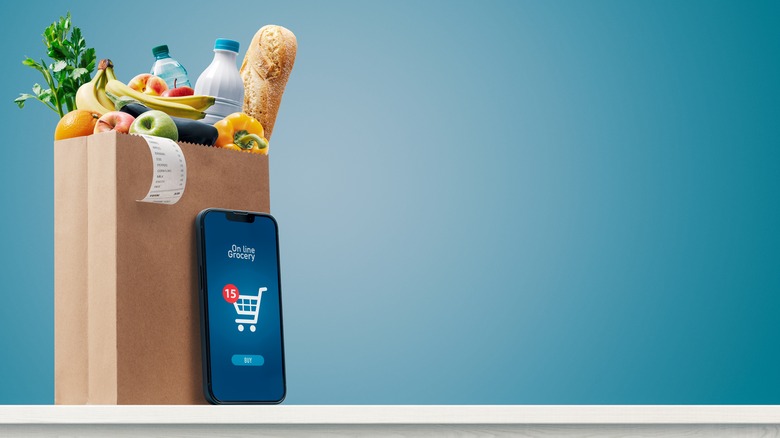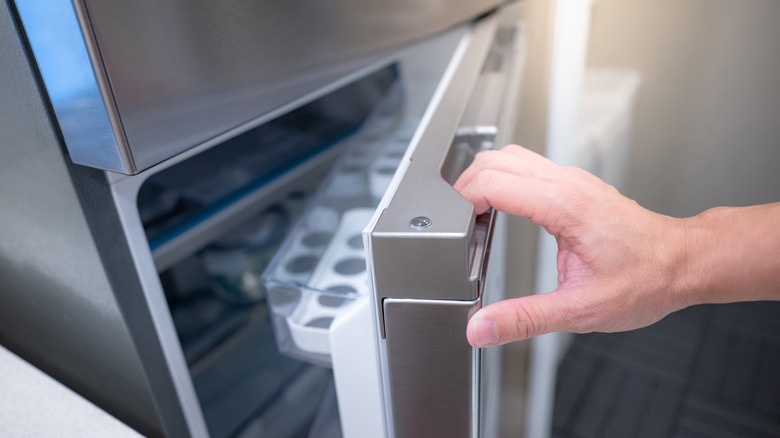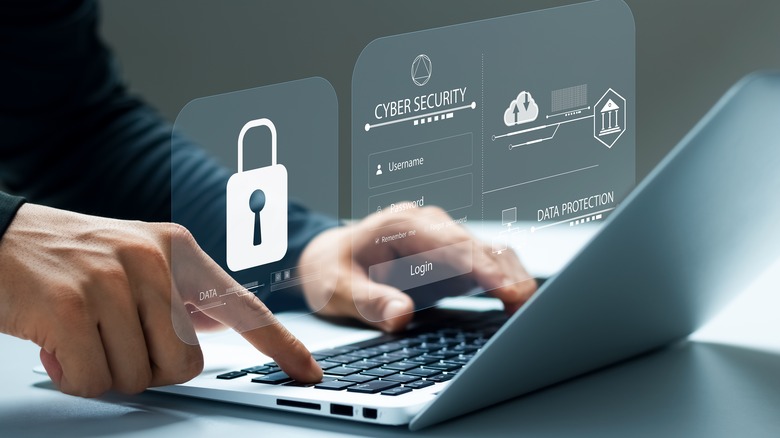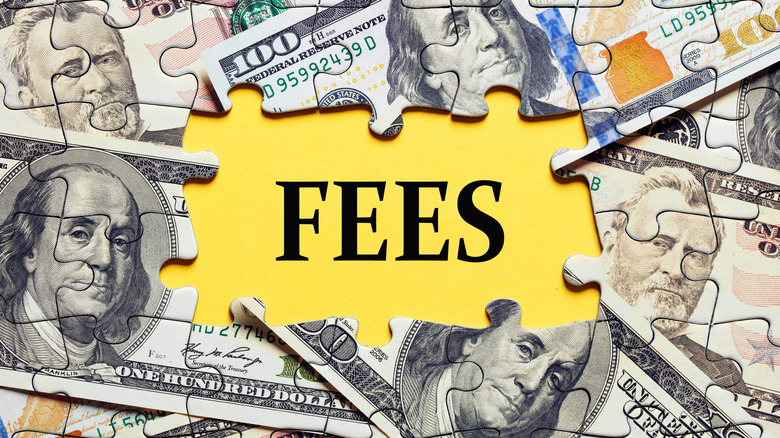13 Things You're Paying Too Much For And Didn't Realize
Paying for things has become an activity that's just as common as sitting down for a meal or getting dressed. The average consumer not only pulls out their wallet multiple times per day, but they make at least two online transactions every day as well, as of 2022. With spending becoming a staple activity in the lifestyle of virtually everyone on the planet, it's only natural that people will begin to think about ways to save on their daily expenses. Whether it's brewing your morning cup of coffee at home rather than stopping on your commute (which isn't logically sound money-saving advice for most) or cutting out unused subscriptions, there are plenty of ways to streamline your budgetary math.
The reality of modern budget management is that many of the typical purchases that people make could be had at a reduced price tag. A wide range of savings opportunities exist out there in the marketplace, you just have to know how to find discounted rates and alternative solutions that make sense. These are some of the most important areas where you're probably paying too much without noticing.
Your car
Cars are an incredibly expensive feature in the modern budget. Whether you're considering buying a new vehicle or are already managing loan or lease payments on one, the weight of car payments is substantial on the typical budget. The best way to reduce your vehicular expense is during the hunt for a new model. Experts suggest that while roughly 30% to 35% of your monthly budget should go toward housing payments, a cap of 20% acts as a good rule of thumb for car loans.
For most buyers, a new car is a splurge that isn't necessary or worthwhile. A certified, used vehicle will perform just as well on the road and provide you with a long-lasting mode of transportation at a fraction of the price. With the cost of a car spread over many years rather than frontloaded, this decision comes with a gigantic ripple effect. The allure of a new vehicle that includes all the bells and whistles of modern technology might be strong, but resisting it in favor of a more well-designed, long-term budget is a major win for anyone seeking to reduce their outgoing expenses.
Electricity
Managing the electricity bill can seem like a serious chore. There are dozens of ways in which a household can lower the total cost to power the property. For one thing, "vampire loads" are a common issue that can drastically inflate this monthly expense. With a smart meter or extension cords that utilize advanced load management technologies, eliminating large power draws from appliances while they're not in use can reduce your costs. It's also worth looking at your electricity bill to establish if you're being charged high and low rates. Off-peak pricing can be a real game changer, especially for families that charge an electric car at home or run the dishwasher and washing machine every day. These times typically run through the night, so taking advantage of the savings is as simple as setting these electronics on timers for a late evening or early morning start.
Another important note is that electricity prices fluctuate constantly. Many customers will have a fixed rate on their power bill, but others — typically those out of contract — may see a changing rate each month. Switching your supplier is as simple as hunting around for a new rate. You likely cannot change the utility company that delivers your electricity, but in 31 states, the deregulated marketplace allows you to compare supplier pricing to get the lowest rates possible on the resource itself. Shopping around for a new rate every time you come up to the end of your contract is a must.
Your cell phone and internet services
Cell service, internet connectivity, and other similar utility-type expenses can typically be lowered through smart haggling. Your provider almost certainly offers a sliding scale of rates to loyal customers, new sign-ups, and most importantly, customers threatening to leave for a competitor. By calling your provider and asking about discounts, you can ensure that you're getting the best rate possible. The necessity for internet has created a competitive marketplace that effectively prevents companies from retaining total control over price negotiations. What's more, these companies operate large-scale call centers to handle the needs of a high volume of clients. This means that you could spend an afternoon calling your provider as well as others in your area multiple times to try to whittle the price down to the best possible deal. Service contracts for phone, internet, and even cable TV often run for a year or two at a time. This means that a little leg work today can save you a sizable amount of cash on every monthly bill for the foreseeable future.
While it's a good idea to threaten to leave if you're not getting the kind of discount you're looking for, actually changing providers may give you the best price. Businesses in these kinds of industries often provide the best discounts to new sign-ups, but there are often caveats such as not having previously had a contract with the company during a stipulated number of years.
Prescription drugs
Prescriptions can be wildly expensive if you don't do your research and take advantage of price-reducing opportunities. On average, Americans spend twice as much on necessary medication as other fiscally comparable nations (in terms of GDP and other economic factors). Per capita spending on prescriptions in 2019 came to nearly $1,000 in the U.S. In contrast, Canadian spending averaged out at $590, while the United Kingdom and Sweden sported figures of $270 and $273, respectively.
With the inflated cost of healthcare sitting firmly in the public consciousness, Americans have begun to seek out cost-saving changes. One important factor in this financial balancing act is the cost of prescription medication. After visiting a doctor, there's a good chance patients will walk away with a prescription for something to assist in healing their ailment. Whether it's medication for a chronic health issue like diabetes or arthritis or a short-term addition to tackle an injury or common sickness, generic drugs are the way forward. Fortunately, there are now tons of great options to find prescription drugs at low prices like Cost Plus or GeniusRx.
Generic drugs are chemically and functionally the exact same as brand-name medications. This is an FDA requirement. The only difference then is the price. Opting for generic drugs and finding a great resource for your prescriptions for less can create significant savings.
Subscription services
Subscription services are a near constant in the modern marketplace. There's a laundry list of streaming services out there, but many consumers also utilize shipping reduction subscriptions for groceries and goods — like Amazon's Prime membership. Plenty of these monthly charges are warranted for heavy users. You might listen to Spotify every day on your commute or order something from Amazon weekly, for instance. But most Americans also maintain memberships that they don't use at all. A great way to cut costs in this arena is to print out your bank and credit card statements to comb through them by hand. While searching for recurring monthly charges — which may be highlighted in a standalone section — it's a good idea to reach back a few months and add up all the subscription costs you're carrying. There's a chance that you've been paying for a service that you no longer use, or perhaps even forgot about and have left idly eating away at your budget for months or years.
Many people will be able to eliminate something out of their recurring charges, freeing up valuable capital. Similarly, in some circumstances, a student rate or free, ad-supported version can reduce the cost of services you use regularly.
Airfare and baggage fees
Travelers these days have largely abandoned brand loyalty when it comes to airline selection. In the modern landscape of remote and hybrid work, traveling for work has taken a backseat. This means that repeat airline tickets that bring travelers constantly back and forth between two cities (for instance, someone who lives in Chicago and works at a regional office but travels to Philadelphia one a month to check in with corporate leadership) is in decline.
However, there's still great value to be found when committing at least a fragmented loyalty to one or more carriers. Branded airline credit cards, membership accounts, and bookings made on the carrier's website can gain travelers many valuable perks. For one thing, plenty of airlines in the U.S. offer free checked baggage when tickets are purchased with a partnered credit card. With the cost of baggage continuing to skyrocket, this savings tool can make a big difference. The "big four" (American Airlines, Southwest, Delta, and United) account for 74% of all U.S. air travel, so chances are you can find a seat headed to your selected destination on one of them. For those who fly often, only carrying credit cards that align rewards with an airline (rather than cash back, for instance) can be a great way to enjoy reduced fees and the occasional free flight after accumulating enough points.
Food
The cost of the food you eatreally adds up if you aren't diligent. Food is an undeniable necessity. However, there are myriad ways in which conscientious consumers can shore up leaks in their food budget. One primary culprit of overspending in this area lies in an overreliance on restaurant and takeout meals. Eating out at restaurants is one of the most expensive ways you can get the sustenance you need. Of course, eating at your favorite restaurant with family or friends is a social activity that adds value in more ways than just the basic nutritional considerations.
Yet, keeping takeaway dinners and lunches out with friends to a reasonable limit each month can make a sizeable difference in your overall budget. Limiting the most expensive eating option to only notable occasions is a great start here, but it's not the only way to improve your food expenditure. Grocery shopping with a predetermined list can help limit impulse spending or bulk buying that just ends up being wasteful. As it stands, 38% of all food in the nation is wasted, amounting to 80 million tons and a bill of over $444 billion. This affects virtually everyone, but your own wasteful grocery habits can be tamped down with a little additional planning.
Cleaning supplies
As with prescription drugs, cleaning supplies of all types are formulated chemically with an active ingredient that does most if not all of the heavy lifting. Brand-name cleaning supplies tend to add additional scents or visual cues like a foaming agent into the mix. Still, generic cleaning supplies remain an identical and viable option for getting the job done. Similarly, many household items like vinegar and baking soda can be deployed to accomplish the same task at an even lower price point. Vinegar does a phenomenal job at cleaning windows and mirrors, completely replacing products like Windex. Standard white vinegar can be bought easily at any grocery store, and it works phenomenally well to create a streak-free shine, degrease countertops and other hard surfaces, and remove rust from metals.
Virtually every cleaning agent you might use in your home can be found in a comparable, generic package that does the same job and rings up at the checkout with huge savings. If you must have the added scents, however, adding a few drops of your favorite essential oil to the liquid mixture can make for a fantastic cleaning tool that imparts an even fresher atmosphere.
Extended warranties on appliances and electronics
Everyone who has shopped for appliances or expensive electronics will probably be familiar with the concept of an extended warranty. Additional protection on an expensive purchase can seem like a good idea at the time, but the reality is that more often than not these warranty policies are a waste of money. A new dishwasher, desktop computer, or TV will rarely break on its own without a bit of help from rambunctious dogs, careless children, or chronic misuse. Moreover, some extended warranty coverage won't protect your device against damage inflicted by these kinds of encounters and only covers repair or replacement in the event of a fault.
As well, many electronics are bought with a manufacturer's warranty already in place, providing ample protection for the first year or two of the device's life. While an extended warranty policy might not cost much on top of an expensive appliance and add a sort of placebo peace of mind, when it comes down to it you'll almost never get any tangible benefit out of adding this additional warranty coverage.
Wine
Wine is notoriously overpriced in many venues. A bottle purchased while dining out can see as much as a 400% markup, and price structure can truly run the gamut in retail environments, too. There's certainly something to be said about the aging process, the terroir of the grapes, and many other unseen aspects of quality winemaking, yet great wines don't have to cost a fortune. Much of the experience that makes or breaks a glass of wine is tucked away in the drinker's mind, rather than found on the price tag or back label. Indeed, wine journalists are often fooled by temperature changes and other minute details involved in the presentation of a glass.
For avid wine lovers, trying out many different kinds of wines and multiple makers' products within the same category can be a highly fulfilling experience. It's also a great opportunity to explore price-friendly products that share the same qualities that make a drinker's favorite so well-enjoyed. You might be smitten with the smooth and earthy palate of a great Bordeaux — many are — and the vast winemaking region produces both luxuriously expensive bottles at estates like Château Petrus or Margaux, and very reasonable options that still impart all the same tasting notes and flavors.
Anti-virus software
Perhaps surprisingly, anti-virus software is a common expense that doesn't have to be factored into the typical consumer budget. While the likes of Norton or McAfee do a great job of advertising their value, most computers sold today incorporate security features that tend to perform admirably against routine cyber threats. These additional security services can create an even better defense against potential breaches, but they aren't strictly necessary in the modern computing landscape for every user.
What's more, free anti-virus software is also an option for users looking to bolster their security without relying on a paid subscription. This expense isn't a complete waste of money, but it's possible to maintain the same level of protection without having to pay for digital peace of mind. If you are going to pay for this service, it's a good idea to shop around and look for a product that includes bundled extras. Purchasing an Avast One subscription (with Avast being one option for free anti-virus protection) adds access to a dedicated VPN service and other utilities that can make your browsing experience more enjoyable.
Books
Buying used books will net you a huge discount on the price. Used books enjoy a gigantic resale market, and prices can be as much as 66% lower when purchased secondhand. These make for great collegiate textbook buys, considering that many students annotate their books. This ends up acting as a great study resource for the next owner of the tome.
Even if you don't typically buy used books, some avenues can help reduce the expense. Generally, paperback varieties are less expensive than hardcover books. However, a hardcover will stand up to environmental factors better. If you keep your reading materials on a bookshelf and take good care of them, paperbacks will last quite some time as well, though, and cost notably less. Similarly, readers who own a tablet (or even a smartphone) can download countless books through Amazon's Kindle format. This product is even less expensive and comes as a digital download — and therefore doesn't require any waiting time while the book ships from a warehouse. Consumers have been conditioned to seek out shiny, new things, which are often printed in hardback format. Going with a less expensive option will give you the same reading experience at a far better price.
Investment fees
Finally, nearly every investor out there pays fees in some way. Whether it's management costs that come with the ownership of ETF holdings or a direct fee paid to a human financial advisor, there are plenty of reasons why a typical investor might be paying to trade. However, it's essential to understand that any fees you pay to invest take away from the compounding value of the account's principal. The more you pay to trade the more you have to make with each position you take to create the same return.
For many, investing is a retirement planning activity, making the weight of management costs all the more important. The longer your money will be invested, the greater the need to keep fees low. It's completely possible to trade without paying any fees at all, but you're likely going to have to manage the account yourself and invest only in individual stocks rather than index funds or market segment ETFs. Ideally, you'll be able to trade completely cost-free, but if you are seeing fees, it's crucial to understand what they're for and determine if it's possible to lower the costs. Any dollar you spend in extra charges is tens or even hundreds lost over the long term: Just one dollar doubled every seven years for an entire working lifetime returns nearly $200.













